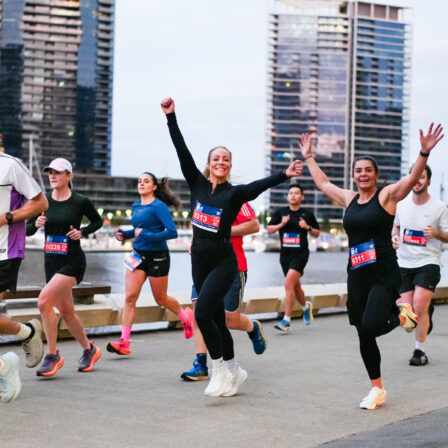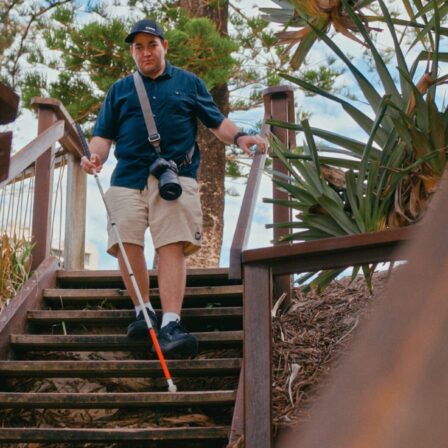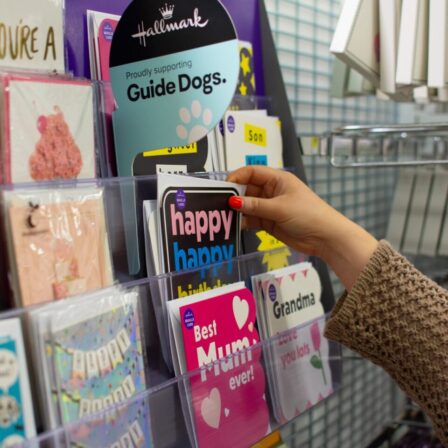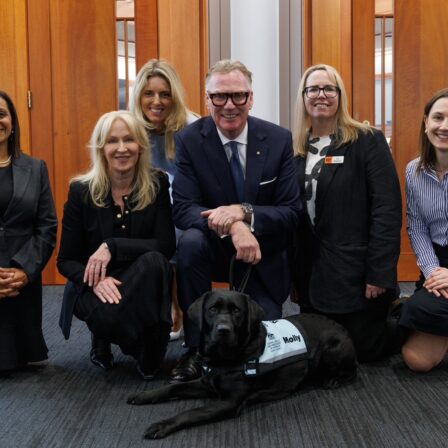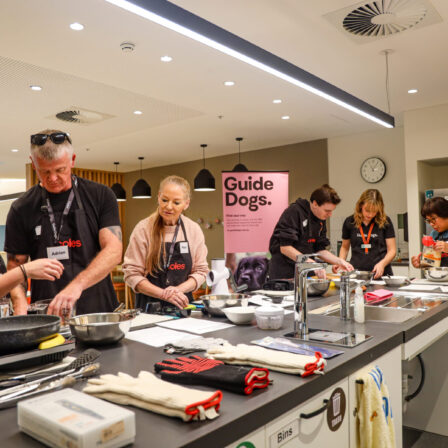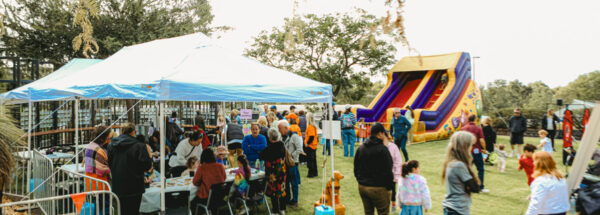News
Celebrating Occupational Therapy Week 2024: Meet Matt
Celebrated this year from 21 to 27 October, Occupational Therapy (OT) Week is a time to recognise the OT profession, celebrate their brilliant work lifting the community and the amazing things they help individuals, groups and communities achieve towards optimal health and wellbeing.
Our dedicated Occupational Therapists (OT or OTs) at Guide Dogs Victoria (GDV) work hard to provide personalised guidance so Clients with low vision or blindness can achieve their goals in their everyday life.
In honour of this exciting week, we are proud to share a story of impact from one of our many wonderful Clients.
Matt is a delightful young man with low vision who lives with his parents in regional south east Victoria. Matt and his OT, Kerryn, have been working together since January 2024 to increase his capacity to safely prepare himself some lunch, change his bedsheets and fold his own laundry.
To support Matt with his goals, Kerryn first observed how Matt was completing these tasks to ensure that his OT program was person-centred and specific to his needs. This process involved trialling multiple ways to change the bed sheets to ensure that Matt could make an informed choice about which method he preferred. This not only encouraged Matt to be the centre of his own OT program, but also increased his motivation to practice the skills he learned, working hard to hone them. The strategy that Matt preferred for changing his sheets involved using tactile feedback to locate the corners of the fitted sheet and using pegs in the top corners of his doona cover so that he could easily locate them while feeding the doona through.
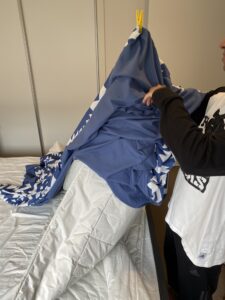
Image description: GDV Client Matt stands in front of his unmade bed and feeds the corner of his doona into a blue doona cover which is pegged in the corner to guide him as he works.
Another goal that was important to Matt was being able to make his own cup of noodles for lunch when his parents were out. Matt was adamant that he wanted to make his noodles on the stove, so Kerryn worked with Matt to learn how to do this. Along the way, Kerryn encouraged Matt to try making them in the microwave so that he could compare the two different methods and then decide which he preferred. Matt surprised himself and found making his cup of noodles in the microwave much easier. He now regularly prepares them for himself and reported to be independent with this goal, when previously he had rated it as a developing goal. His mum even commented that she often calls him to see if he would like her to bring lunch home for him, only for Matt to reply with satisfaction that he’s, “made [himself] a cup of noodles already.”
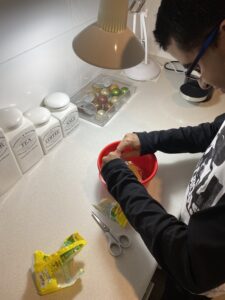
Image description: Matt stands in front of a white kitchen bench with an open bag of two-minute noodles. He is adding the noodles and flavouring to a red bowl. A desk lamp is set up on the counter illuminating his station making it easier for him to make his lunch.
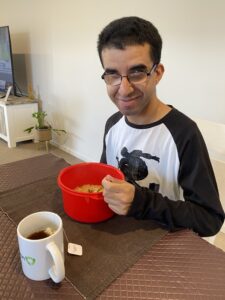
Image description: Matt sits at a dining table with a cup of tea and his red bowl of noodles. He smiles proudly into the camera as he enjoys the lunch he just made himself.
Additionally, Kerryn supported Matt to utilise tactile feedback to learn how to fold his clothes. Kerryn graded the task by starting with simple T-shirts first, before progressing to more challenging items to fold like a button-up long-sleeve shirt. Matt chose to complete this task in a room with lots of natural light to support his vision needs and found the task more enjoyable and efficient when using a folding board.
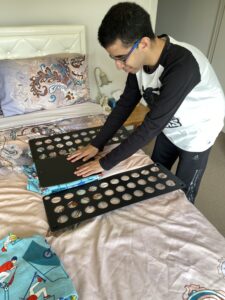
Image description: Matt stands in front of a bed with colourful bedding using a black folding board to fold his clean laundry. In the bottom left corner, a piece of folded clothing sits in a neat pile as Matt continues folding.
Matt’s wonderful outcomes are a credit to the effort he puts in to work towards his OT goals and the support he receives from his family to practice these skills outside of OT sessions. This story highlights the important work that our OTs do to support Clients with low vision or blindness to live a life without limits and engage in occupations that are meaningful to them.
We must also highlight the other vital roles at GDV that help Clients achieve their goals, such as Orthoptists, Orientation and Mobility Specialists (O&Ms), and Assistive Technology Specialists. As a multi-disciplinary team, we utilise a holistic approach to address different challenges our Clients have in their daily activities. Without each other, we are unable to help Clients achieve the best outcomes.
Curious to find out more out OT? Keep reading!
What is Occupational Therapy?
Tailored to each individual of any age and level of vision, OT is all about learning practical skills to support your daily lifestyle. Whether your goals are in the home, at your workplace or place of study, within the local community, or you’d prefer to join us at our Campus, feel supported in the environment you want to thrive in.
What kind of skills can I learn through Occupational Therapy?
Our team of OTs can support you with any goal, big or small.
- Personal care skills: Such as showering and grooming, choosing outfits and getting dressed, and managing medications.
- Home domestic skills: Including cooking, cleaning, preparing hot drinks or a meal, doing laundry and gardening.
- Errands: Step into the community and withdraw money from an ATM, sign documents, identify and manage money during shopping, and manage your own grocery shop.
- Communication: Via phone, handwriting, and learning to use adaptive technologies.
- Enhancing your home: Find the best type of lights, and develop strategies, to maximise your vision and move around more easily.
We welcome referrals and enquiries from individuals, families, health professionals and community organisations. You may also be eligible to access this service through the National Disability Insurance Scheme (NDIS) which our Support Coordination Team can assist you to navigate and get you on the path towards your personal goals.
To explore our OT service and how it can work for your goals, you can request a service here.


